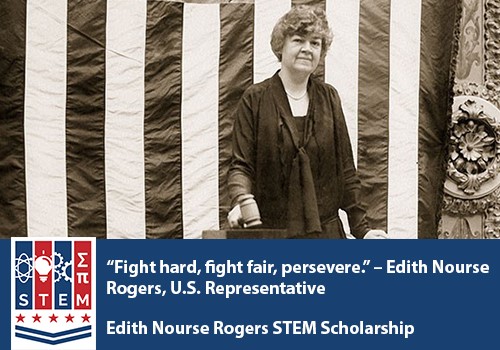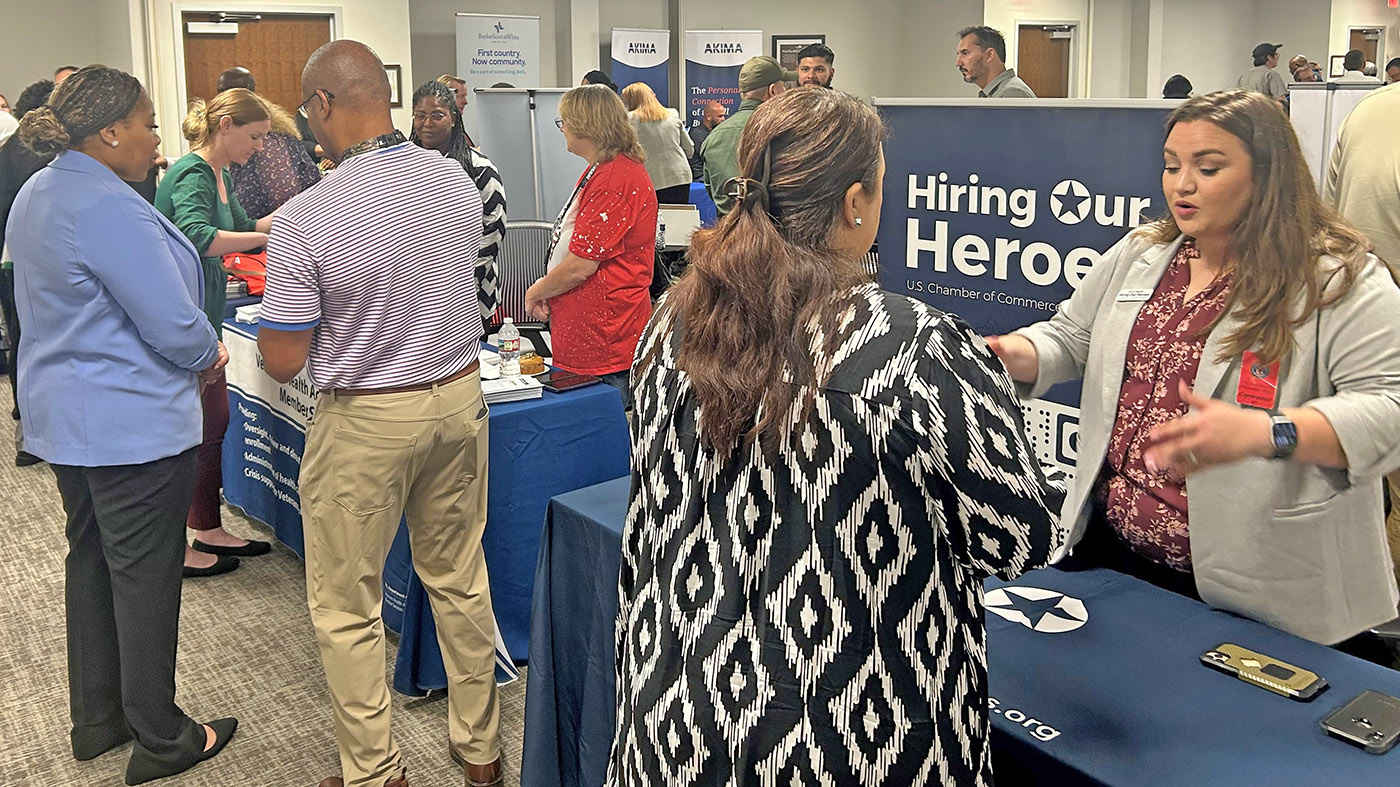Post-9/11 GI Bill students who are pursuing degrees in Science, Technology, Engineering, and Math (STEM) can apply for the Edith Nourse Rogers STEM Scholarship. It’s a new program to help eligible Veterans and Fry Scholars extend their Post-9/11 GI Bill benefits to cover a STEM undergraduate degree or teaching certification.
Degree programs in STEM fields may require more academic credit hours than other degree programs. Enter the Rogers STEM Scholarship, a provision of the Harry W. Colmery Veterans Educational Assistance Act (Forever GI Bill). It helps eligible Veterans and Fry Scholars complete these longer STEM programs—or if they have already earned a STEM degree, pursue a teaching certification—with additional Post-9/11 GI Bill benefits.
To apply for the Rogers STEM Scholarship, you must be a Post-9/11 GI Bill student who has either exhausted your entitlement or will exhaust your entitlement within 180 days. There are two paths to the Rogers STEM Scholarship:
- STEM Student: You’re enrolled in a STEM program leading to an undergraduate degree; you’ve completed 60 credit hours of your program and to graduate you must complete more than 120 semester (or 180 quarter) credit hours.
- STEM Graduate Seeking Teacher’s Certification: You’ve earned a STEM undergraduate degree and have enrolled in a teaching certification program.
Students must exhaust their Post-9/11 GI Bill benefits before using the STEM scholarship. The Rogers STEM Scholarship will provide up to nine months of additional Post-9/11 GI Bill benefits (to a maximum of $30,000) to qualifying Veterans and Fry Scholars seeking an undergraduate STEM degree or who have earned a STEM degree and are seeking a teaching certification.
More information including how to apply is available here: https://benefits.va.gov/gibill/fgib/stem.asp.
Priority is given to individuals who require the most credit hours and who have exhausted their benefits.
About Edith Nourse Rogers
Edith Nourse Rogers represented Massachusetts in the U.S. House of Representatives from 1925–1960 and was a tireless advocate for Veterans. She was one of the first women to serve in Congress and had the second-longest tenure of any woman elected in Congress.
Rogers served on the Foreign Affairs Committee and Civil Service Committee, chaired the Committee on Veterans’ Affairs, and was the first woman to preside as the House of Representatives Speaker pro tempore.
Start your Post-9/11 GI Bill education journey
If you haven’t explored your options to use your GI Bill benefits, you can start by visiting the GI Bill Comparison Tool. Here’s the link: GI Bill Comparison Tool.
You can see how to maximize your education value and look up the college, training school, or even apprenticeship program you’re interested in attending. You can also see how much your GI Bill benefits will pay for and if you’d have any out of pocket expenses.
If you have any questions, please call 1–888-GI-BILL-1 (1-888-442-4551). If you use the Telecommunications Device for the Deaf (TDD), the Federal number is 711.
As always, be sure to follow us on social media on our Facebook and Twitter: @VAVetBenefits accounts. These accounts give quick and helpful updates.
Terry Warren is a management analyst for VA’s Education Service
Topics in this story
More Stories
After a Veteran passes away, family members should report the death of the Veteran to VA as soon as possible to stop current benefits payments. If the death is not reported promptly, survivors or executors of the Veteran’s estate may have to repay any overpayments received.
Supporting Veterans with job training, education, employment accommodations, resume development and job seeking skills coaching.
VA wants to ensure Veterans, including those who choose to have their private health care provider complete a DBQ, are appropriately equipped with the information they need to submit DBQs successfully.







Edith Nourse Rogers was such a good person. I am glad that this woman’s name is now being used to carry out projects to help students.